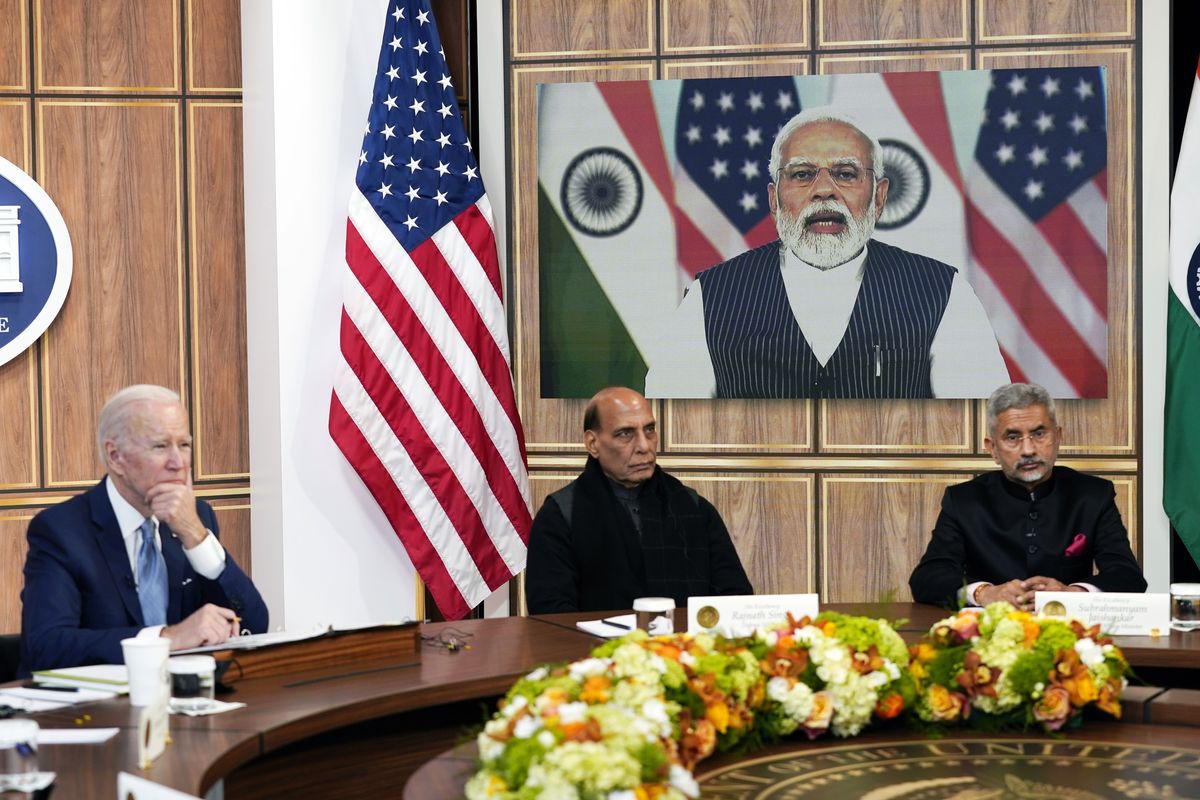Biden, Modi speak as US presses for hard line on Russia

WASHINGTON — President Joe Biden spoke with Indian Prime Minister Narendra Modi on Monday with a focus on how Russia’s war in Ukraine has destabilized the food supply in parts of the world and about the clear distance between the U.S. and India on whether Russia should be punished for the invasion.
Biden opened the video conversation by emphasizing the defense partnership between the two countries and by saying the U.S. and India are going to “continue our close consultation on how to manage the destabilizing effects of this Russian war.”
“The root of our partnership is a deep connection between our people, ties of family, of friendship and of shared values,” the U.S. president said.
India’s neutral stance in the war has raised concerns in Washington and earned praise from Russian Foreign Minister Sergey Lavrov, who lauded India this month for judging “the situation in its entirety, not just in a one-sided way.”
Modi on Monday called the situation in Ukraine “very worrying,” and he noted that an Indian student lost his life during the war. He said he has spoken with Russian President Vladimir Putin and Ukrainian President Volodymyr Zelenskyy, appealing to both of them for peace. India has condemned the killings uncovered in the city of Bucha and has called for an independent investigation.
A senior U.S. official described the Biden-Modi exchange as warm and productive, though the official stressed that India would make its own decisions on how to respond to Putin. The official insisted on anonymity to discuss the meeting.
Biden and Modi discussed how to manage the risks of global instability regarding food, humanitarian relief and climate change, and Modi candidly shared his views about some of the tight links between between Russia and China that raise concerns, the official said.
White House press secretary Jen Psaki Sunday that the two leaders would also discuss “strengthening the global economy and upholding a free, open, rules-based international order to bolster security, democracy and prosperity in the Indo-Pacific.”
Also Monday, U.S. Defense Secretary Lloyd Austin met in the morning in-person with Indian Defense Minister Rajnath Singh, and U.S. Secretary of State Antony Blinken was to meet later with Indian External Affairs Minister Subrahmanyam Jaishankar.
India has refrained from some efforts to hold Russia accountable for its invasion. India abstained when the U.N. General Assembly voted Thursday to suspend Russia from its seat on the 47-member Human Rights Council over allegations that Russian soldiers in Ukraine engaged in rights violations that the U.S. and Ukraine have called war crimes.
The vote was 93-24 with 58 abstentions.
India continues to purchase Russian energy supplies, despite pressure from Western countries to avoid buying Russian oil and gas. The U.S. has also considered sanctions on India for its recent purchase of advanced Russian air defense systems.
Last month, the state-run Indian Oil Corp. bought 3 million barrels of crude from Russia to secure its needs, resisting entreaties from the West to avoid such purchases. India isn’t alone in buying Russian energy, however. Several European allies such as Germany have continued to do so, despite public pressure to end these contracts.
Indian media reports said Russia was offering a discount on oil purchases of 20% below global benchmark prices.
Iraq is India’s top supplier, with a 27% share. Saudi Arabia is second at around 17%, followed by the United Arab Emirates with 13% and the U.S. at 9%, the Press Trust of India news agency reported.
Biden and Modi last spoke in March.